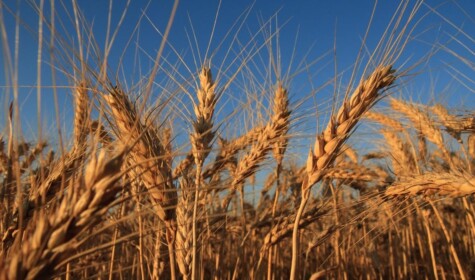If this pandemic has taught us anything, it’s that health is vitally important, and as a society, everyone must work together to recover – economically and emotionally.
Volunteers and staff in organisations across the UK such as Trussell Trust, Food Cycle and FareShare responded to the individual impact of job losses, business closures and supermarket shortages and continued to nourish communities by handing out emergency food parcels. The compassion demonstrated through these activities and through prominent individuals such as footballer and food poverty advocate Marcus Rashford with his #WriteNow campaign calling for the end of child food poverty, has retained faith in humanity.
What does ‘food insecurity’ mean?
Food insecurity remains a mammoth and bleak issue and many factors, including the pandemic, work to increase it. The pandemic created such an economic vulnerability that there was a 33% increase in emergency food parcels distributed between April 2020 and March 2021 by Trussell Trust’s UK network of food banks – shockingly, 980,000 obf these went to children. Although it is clear food banks are important in addressing health inequalities in communities, a reliance on food banks is not a long-term solution. Food insecurity is often associated with developing nations, but it is also an issue of developed nations. Its definition is complicated and encompasses the lack of access to food as well as the affordability of food. This type of insecurity can be brought on by personal or financial circumstances such as poor mental health or redundancy and can be an experience that an individual endures over a long period of time due to a low income or disability. With over 14.4 million people in the UK living in families in poverty, it’s necessary for continued intervention and updates in economic and welfare policy to confront some of the driving forces of food insecurity.
2.5 million people in the UK survive with incomes no more than 10% above the poverty line
There’s little room for discussion on the detrimental impact that COVID-19 has had on those struggling to afford food or get access to it. At the beginning of the pandemic, more than three million people reported going hungry in the first three weeks of lockdown in the UK. The Food Foundation reported that 2.5% more adults with children experienced moderate or severe food insecurity in the six months leading up to September 2020, compared to pre-pandemic levels. The disruption of the pandemic exposed and created many financial fragilities in households and the economy, resulting in food insecurity becoming more apparent and harder to ignore. There are abundant examples of local shops and religious groups handing out food parcels to the vulnerable in local communities in response to these hardships. This resilient, generous and selfless attitude is still very much needed as we move forward. Despite school food vouchers, food parcels and the furlough scheme helping families, the matter surrounding affordability and access to food has not been fully alleviated and poses an even greater concern for children as the pandemic has had a disproportionate effect on their health and development.
How can we address food insecurity?
Impactful food education such as how to reduce food waste and having financial investment in schools and communities to encourage growing food, could prove beneficial in developing thriving local food sectors to help individuals and children access food when the world is in crisis. By educating individuals on these topics, local authorities can offer a more secure food environment.
Moreover, this approach is beneficial in acclerating the move towards a sustainable food system, as the unpredictability and ruinous nature of climate change is having an impact on the food supply chain and affecting the price, quality and availability of food in stores. While we’ve been living through the pandemic, climate change has simultaneously further exacerbated the food insecurity gap and added insurmountable pressure on agricultural processes. Droughts or increased flooding can destabilise parts of the food supply chain and harm food workers’ livelihoods, with an impact on the end consumer, creating an insecure food environment. This is currently seen in places such as Afghanistan where drought is contributing to a major food hunger crisis – one that cannot be fixed overnight.
How can the UK become more food secure?
The UK’s own dependency on imported foods threatens food security across the country; many foods available in our supermarkets are cultivated abroad and where climate change is affecting the growing process, this has the potential to consequently limit food availability. It is therefore essential for local authorities and the Government to encourage community food growing by promoting urban farming and funding allotments and community growing spaces in order to diversify production and avoid sole dependency on a centralised supply chain. A people-oriented, decentralised food system that includes farmers, food workers and communities can help build resilience in climate change, which threatens the viability of the farming and food sector, and also improves access to healthy food for those on lower incomes. This is particularly important in the face of increased food prices, caused by Brexit, supply shortages and inflation.
Lately, it’s been even clearer that a decentralised and less fragile food system could be favourable as the decrease in HGV drivers shows it only takes one disruption, in one part of the food supply chain, to produce a ripple effect and create food shortages in supermarkets. The recent supply chain issues meant around one in six (17%) of adults in the UK were unable to buy essential food items as they were not available in the stores and 15% were unable to obtain fuel. Where the UK, in particular, is not self-sufficient enough in the production and distribution of food, it shows developed nations are at times just as vulnerable as developing nations, and until there is a focus on sustainable farming and communities working together that’s backed with financial support, food insecurity will continue to permeate in society.




